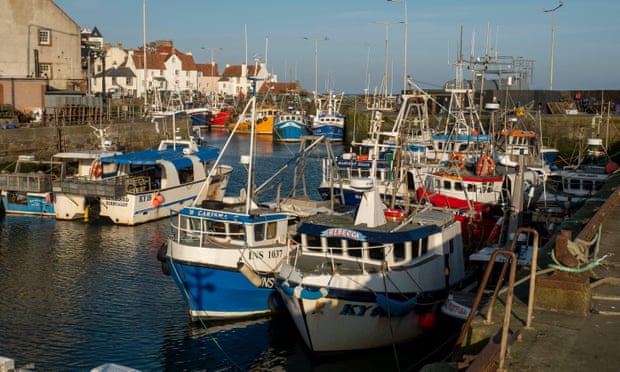£500,000 from Seafarers UK for fishers impacted by COVID-19

Seafarers UK has created a new Seafarers UK COVID-19 emergency fund of £2million, with £500,000 immediately allocated to assist fishing communities across Britain.
Included in the grants that have been awarded to charity partners providing advice and support arising from the widespread impacts of the coronavirus are:
- £250,000 to provide match funding with The Fishmongers’ Company’s Fisheries Charitable Trust for innovative projects to support fish and seafood businesses, benefiting the fish-catching sector.
- £200,000 to The Fishermen’s Mission to provide hardship welfare grants to fishers and their families, based on requests received via the Mission’s frontline staff
- £50,000 reserved for organisations working with fishers around the UK.
This comes as Scottish fishermen turn to food banks as COVID-19 devastates the industry.
With the foreign sales of shellfish devastated and supermarkets closing fish counters, the situation is hard.
According to the Fishermen’s Mission, a Christian welfare charity, worst-hit are lobster and crab fishermen in Scotland’s south-east and west coasts. Staff at the charity have also identified “pockets of need” in Shetland and as far south as Newlyn in Cornwall, says The Guardian.
The UK fishing industry is worth £989m annually, with Scottish vessels responsible for more than half, at £574m in 2018. More than 70% of its catch is exported, mainly to Europe and Asia, but foreign and hospitality markets have collapsed in the crisis. While a much smaller retail market still exists for some fish, many supermarkets have shut their fish counters, reducing demand further. For high-value shellfish, the market is now virtually non-existent.
“Langoustine, shrimp and prawn are almost impossible to get rid of and the demand for crab and lobster in China has just vaporised,” says David Dickens, Fishermen’s Mission chief executive. “When there’s a pandemic, people aren’t interested in high quality seafood.”
Donna Fordyce, the interim head of trade marketing body Seafood Scotland, which is working on exploring other alternatives to get Scotland’s seafood to consumers, says: “It’s a pretty grim picture across the board. The seafood sector has been one of the hardest hit of all the sectors in Scotland because of the level of exports. The market has more or less collapsed in Europe.”
It was already a bad year for fishermen, she says, with the “worst weather we’ve seen for 15 years for fleets”, before the COVID-19 crisis hit.
“The prawn and the scallop fleet are more or less all tied up,” says Fordyce. “The whitefish fleet, some are still going out.
“It is going to be a UK market for the next few months.”
“We are supporting welfare and providing hardship grants, but also tackling the underlying causes of financial difficulty. We will help fishers keep fishing by creating new online routes to consumers,” says Seafarers UK’s chief executive officer, Catherine Spencer. “We are supporting fishers during the collapse of hospitality and export sales to create new supply chains to a previously untapped domestic market in the UK that we hope will endure beyond the COVID-19 crisis. Our ambition is for fishers to receive fair value for their fish while bringing wholesome food and a reasonable price to consumers too.”
Grants from Seafarers UK are offered to charities and other organisations providing services to fishers and their families. Applications should be made via email to grants@seafarers.uk. Individual fishers seeking support should contact SAIL (Seafarers’ Advice and Information Line), a dedicated free Citizens Advice facility that receives an annual grant from Seafarers UK.










